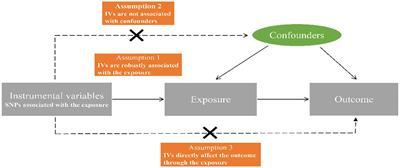Celiac Disease and Attention-Deficit/Hyperactivity Disorder: A Bidirectional Mendelian Randomization Analysis
Recent observational research suggests a potential link between celiac disease (CeD) and an increased incidence of attention-deficit/hyperactivity disorder (ADHD).

However, the genetic relationship between CeD and ADHD remains unclear. In order to assess the potential genetic causality between these two conditions, we conducted a Mendelian randomization (MR) analysis.. Methods: We performed a bidirectional MR analysis to investigate the relationship between CeD and ADHD. We carefully selected single nucleotide polymorphisms (SNPs) from publicly available large-scale genome-wide association studies (GWAS) databases, employing rigorous quality screening criteria. MR estimates were obtained using four different methods: fixed-effect inverse variance weighted (fe-IVW), random-effect inverse variance weighting (re-IVW), weighted median (WM), and MR-Egger.
The robustness and reliability of our findings were confirmed through sensitivity analyses, assessment of instrumental variable (IV) strength (F-statistic), and statistical power calculations.Results: Our MR analyses did not reveal any significant genetic associations between CeD and ADHD (fe-IVW: OR = 1.003, 95% CI = 0.932-1.079, P = 0.934).Similarly, in the reverse direction analysis, we found no evidence supporting a genetic relationship between ADHD and CeD (fe-IVW: OR = 0.850, 95% CI = 0.591-1.221, P = 0.378). Various MR approaches consistently yielded similar results. Sensitivity analysis indicated the absence of significant horizontal pleiotropy or heterogeneity.However, it's important to note that the limited statistical power of our study may have constrained the causal analysis of the exposure's influence on the outcome. Conclusion: Our findings do not provide compelling evidence for a genetic association between CeD and ADHD within the European population. While the statistical power of our study was limited, future MR research could benefit from larger-scale datasets or datasets involving similar traits. To validate our results in real-world scenarios, further mechanistic studies, large-sample investigations, multicenter collaborations, and longitudinal studies are warranted.
Read the full article at the original website
References:
